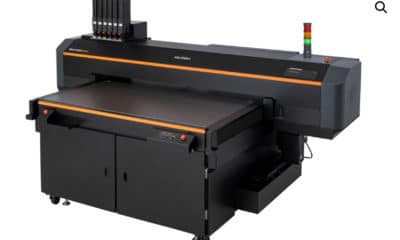There’s lots of buzz about millennials and the impact they’re having on our workplace. And for good reason: Generation Y now represents the largest population in the workforce in the US. Printers that best engage with and embrace millennials will have a competitive advantage over printers who ignore or do not adapt to this generation, as well as the ones to come. Currently, the job market is hot and there’s a plethora of employment opportunities at our shops. So, let’s take a look at what we can do to engage this important demographic in print and ensure that our current millennial team members are contributing to our success.
First, let’s define what a millennial is. Unfortunately, there’s not one definitive authority on the generational differences – plus, it’s always a little risky to stereotype people into large groups – but generally, millennials are born between 1981 and 1996.
- Baby Boomers: 1946-1964
- Generation X: 1965-1980
- Millennials: 1981-1996
- Generation Z: 1997-present (Note: This group will be entering the workforce in the next four years.)
Common traits that apply to all millennials:
- Live in their parents’ basement
- No work ethic – a very lazy generation
- Entitled – love participation trophies and don’t believe in competition
- Impatient – maximum tenure of six months at any one place of employment
- Only form of communication is Snapchat and Twitter – avoid speaking to other human beings
- Never learned to spell
I’m obviously being very sarcastic! The above attributes are common myths used to describe millennials. Most of these are blatantly false and some are outright ridiculous. But, if these stereotypes are believed to be true and you choose not to hire from this age group, it can hinder the success of your business.
Are Millennials Really That Different?
Millennials are actually more similar to other generations than we think. Most millennials I know and work with want the following:
- To be given interesting work to do
- To be empowered to make decisions
- To be rewarded based on their performance
- To be given the chance to advance
- To have their opinions and feedback heard
If you reread that list, is it really that different than baby boomers or Gen Xers? Who wouldn’t want interesting work, empowerment, to be rewarded, or to have the opportunity to advance and be heard? I believe that when it comes to management and engaging employees, best practices apply consistently to all generations.
Advertisement
How Are Millennials Unique?
Of course, there some differences that are important to note. If we can understand these contrasts and address them, it can have a huge impact on our ability to keep millennials engaged.
1. Millennials are not afraid to change jobs.
Treat millennials poorly or disrespect them, and they’ll likely be on Indeed posting their resume within the hour. In a recent survey conducted by Gallup, 63 percent of millennials believe it is “very likely” or “somewhat likely” that they would find a job as good as the one they have if they were let go. Millennials are certainly not afraid of jumping ship.
2. Millennials want work with a purpose.
We all want purpose in what we do, but millennials are far less likely to work for only a paycheck. They want their company and their role within the company to mean something – to stand for some greater good.
3. Millennials value different benefits and perks.
Other generations place a high value on benefits – health insurance, paid vacation, and retirement plans. Millennials value perks that offer them greater flexibility and advancements related to children and education, like increased paid maternity (and paternity) leave and an opportunity to get their master’s degree for free. Millennials are also far more likely to leave a company for a perk than any other generation.
4. Millennials want flexibility in when and where they work.
According to a recent Gallup survey, 50 percent of millennials say they would switch to a job that allows them to work off-site part time and 47 percent would switch to a job that allows them to work off-site full time. This will be a tough one for us printers to handle, and this may not work for all positions in-house, but note that they do place a high value on work-life balance. Consider walking meetings or one telecommute day per week.
How Do We Get Millennials Excited About and Engaged in the Print Industry?
Let’s face it, print isn’t exactly the sexiest industry on the planet. We aren’t developing flying cars, the latest tech gadget, or the next renewable energy source. We’re putting ink down onto a variety of materials and often working on the same types of projects every single day. Don’t get me wrong – I love and take a ton of pride in what we do. PSPs have done some pretty amazing things, but unless your shop is loaded with the latest 3D printers or AR technology, we have some work convincing millennials that the print industry can make for an exciting career.
Advertisement
Tips for Engaging Millennials
You might be thinking “OK Brian, I get it. Millennials are important. But what do we do about it?” I’ll conclude with a collection of tips to help you engage with millennials who work with you.
Ask your employees if you have dumb rules: A great question to ask your team members is if you have any “dumb” rules. No one wants useless rules to control their actions or behaviors. One of the best ways to disengage a millennial is to use such phrases as: “That’s the way we do it around here,” “That’s how it’s always been done,” or “In my day, nobody let me get away with that.”
Practice meritocracy by rewarding performance over seniority: Millennials can be restless and aren’t scared to switch jobs. Make sure you are rewarding employees based on performance. At Olympus, we believe we’re a team, not a family. We reward top performers and replace mediocre performers. We treat people fairly, not equally. This resonates with millennials who, at times, can be a tad bit impatient but understand and place value in results.
Understand what benefits your employees value: Ask your team members what benefits they value and if there are any additional benefits they wish you offered. Millennials appreciate the perks you provide and they aren’t scared to leave for a company that offers better rewards for a job well done. Focus on PTO, flexibility, and freedom over 401(k)s and fancy titles.
Stop calling them millennials (Yes, I’ve used it through this entire article, but only for consistency’s sake): Millennials truly value their individuality and don’t like being stereotyped into a large group. Instead of referring to employees as “millennials,” use their first names.
Don’t skimp on the praise: Growing up in a culture of instant gratification, millennials are used to receiving feedback immediately. If someone is doing a good job, tell them exactly that and make sure to do it right now. A little positive reinforcement and some “atta boys” go a long way.
Advertisement
Deliver regular feedback: The traditional annual performance review is dead. Millennials want constant evaluation to make sure they’re meeting expectations. (It’s also very important to ensure you have clearly set expectations in the first place). Set up regular check-in meetings (or weekly 1-1s) with them and be honest. If they’re not performing well, be sure to tell them.
Offer unique training opportunities: Millennials have a strong desire for personal growth and development. Try offering untraditional training opportunities including mentorships or job shadowing.
I am by no means an expert on an entire generation. I do, however, believe if you put a couple of these tips into practice, you’ll have a more engaged group of millennials working for you.
One of the best things about millennials is that they like to talk about and share their experiences online. They aren’t hesitant to give details on their jobs and employers on Glassdoor. If you can get a little momentum engaging the millennials at your company, it could open the floodgates for other motivated and engaged millennials to want to join your team. And who wouldn’t want to create a desirable place to work?
Brian Adam is president and owner of Olympus Group, headquartered in Milwaukee, with a production facility in Orlando, Florida. An expert on corporate culture, Adam was recognized by Glassdoor as one of the top 25 CEOs to work for in the US in 2017. While technically not a millennial (Adam was born in 1978), 40 percent of the 200 employees at Olympus are millennials.


 VEHICLE WRAPS + GRAPHICS3 weeks ago
VEHICLE WRAPS + GRAPHICS3 weeks ago
 Press Releases3 weeks ago
Press Releases3 weeks ago
 Case Studies3 weeks ago
Case Studies3 weeks ago
 Case Studies1 week ago
Case Studies1 week ago
 Benchmarks3 weeks ago
Benchmarks3 weeks ago
 Press Releases2 months ago
Press Releases2 months ago
 Press Releases3 weeks ago
Press Releases3 weeks ago
 Press Releases2 months ago
Press Releases2 months ago












